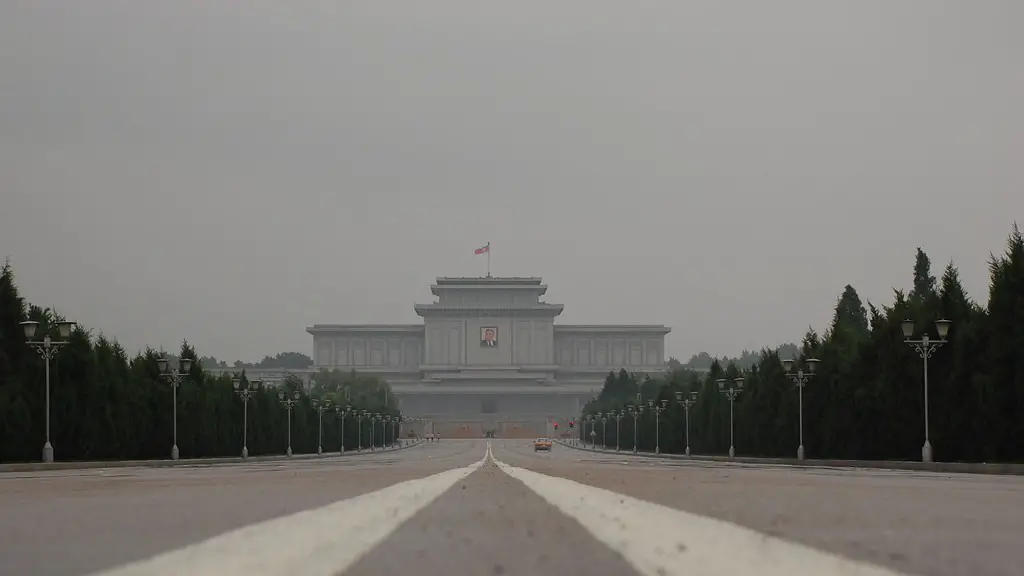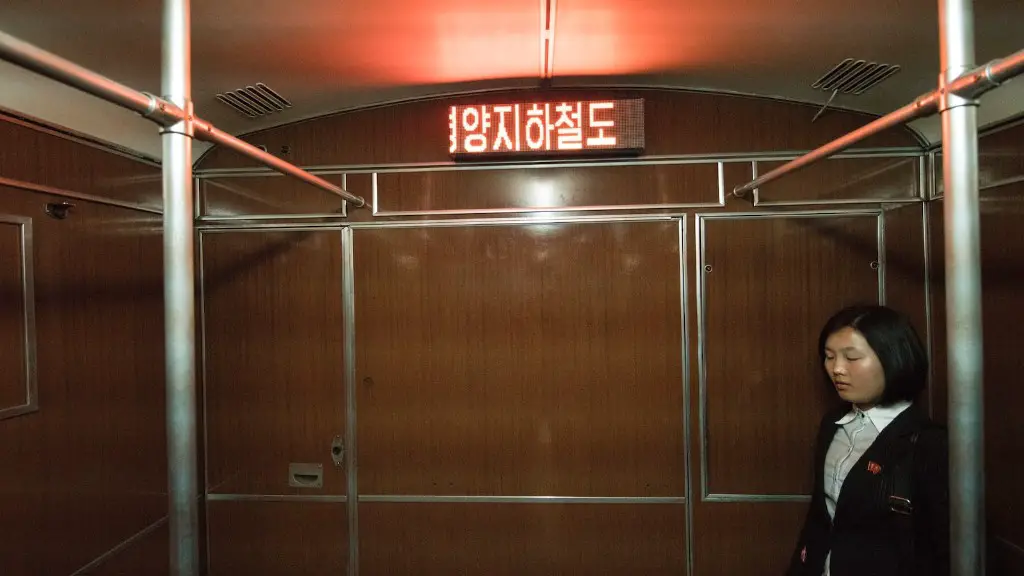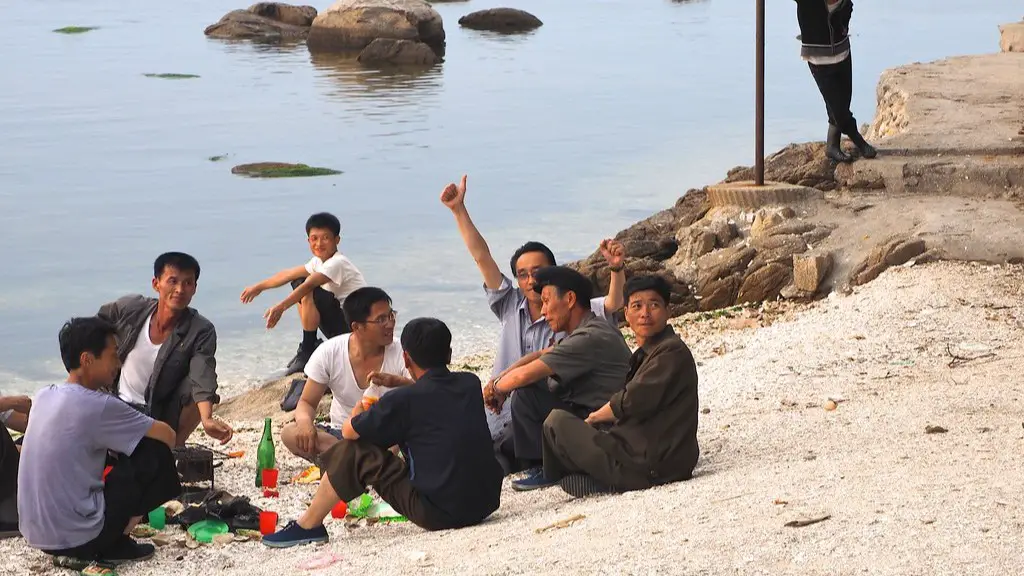For decades now, North Korea has been the pariah of the global community. Notoriously isolated and repressive, North Korea is widely known for its restrictive travel policies. North Koreans are not allowed to leave their homeland without the explicit permission of their government. As a result, thousands of North Koreans remain trapped in the country – unable to exercise their right to travel. What’s more, those who do manage to escape risk facing serious consequences if apprehended.
At the heart of North Korea’s stringent rules on international travel lies a desire to protect the country’s current political and economic system.The oppressive nature of North Korea’s ruling regime is well documented, and its leadership is determined to maintain control over the nation’s citizens. By keeping its people away from the outside world, the government aims to prevent the spread of ‘dangerous’ ideologies and foreign influences.
The international community has long criticized North Korea’s refusal to allow its citizens to travel freely. Several NGOs and activists continue to call for the country to open its borders, however to no avail. In 2015, North Korean officials even passed a law forbidding citizens from visiting many of the country’s own provinces without permission.Since the state tightly controls and monitors its borders, the prospect of defying the country’s laws is not one most North Koreans are willing to take.
Adding to the problem isthe fact that North Korea’s state-controlled media blocks most outside resources from entering the nation. To this day, North Koreans remain largely ignorant of the outside world. Consequently, the country’s citizens remain easily manipulated by their government – and far more likely to suffer in silence.
It is clear that North Korea’s layered approach to restriction and control has been successful in keeping its citizens in the dark. Unless the country changes its policies, thousands of North Koreans will continue to be denied their right to leave their homeland.
The Impact of North Korea’s Domestic Policies
North Korea’s policy of restricting international travel is part of a larger suite of domestic policies that have been put in place to maintain control over the nation’s people. These policies include restrictions on freedom of expression, the press, and thought in general. All of these policies lead back to the same goal – to keep the population under the thumb of the regime.
The effects of these oppressive measures can be profound, particularly when considering the number of North Koreans living in abject poverty in the country. With limited access to food, shelter, and other basic necessities, many North Koreans are left vulnerable to exploitation.This in turn deepens the culture of fear and mistrust – making it even harder for those who do attempt to flee the oppressive environment in their homeland.
In essence, North Korea’s current regime has created a cycle of deprivation that is incredibly difficult to escape. Those who choose to break away from the regime and attempt to leave the country risk facing serious repercussions for doing so.
The Role of International Organizations
Given the severity of North Korea’s restrictions, the international community has an important role to play in helping North Korean citizens access their basic human rights. In recent years, several organizations have stepped in to provide North Koreans with aid and support. These organizations include the United Nations’ World Food Programme (WFP), which provides food to vulnerable North Koreans, and the UN High Commissioner for Refugees (UNHCR), which helps North Koreans resettle in foreign countries.
The WFP and UNHCR are just two of several international organizations dedicated to helping North Koreans. Other organizations, such as Liberty in North Korea and Human Rights Watch, are also taking an active role in calling for freedom and equality for those living in North Korea.
Though their efforts may be small in comparison to the scale of the challenge, these organizations are playing a vital role in helping North Koreans access their basic rights. By doing so, they are improving the lives of countless people and making a real difference in the country.
The Role of Regional Organizations
In addition to international organizations, North Korea’s neighbours have also been playing an important role in attempting to resolve the crisis. Regional organizations such as ASEAN and the East Asia Summit have been working to improve relations between North Korea and the surrounding countries, and are seeking to promote peace and stability in the region. Similarly, South Korea has also been actively seeking to bring about change in North Korea, with recent efforts focused on improving infrastructure and economic cooperation.
Such initiatives are essential if the region is to break free from the current cycle of conflict. However, it is clear that more needs to be done, particularly in terms of supporting North Koreans in their efforts to leave the country.
The Ongoing Crisis
The crisis in North Korea continues to deepen. With its oppressive policies and tight control over its borders, the country’s government is doing little to address the situation. As a result, the situation is becoming increasingly dire for those trapped in the oppressive regime.
Though there have been some attempts to address the crisis, more needs to be done if North Koreans are to be given the freedom to leave the country. International organizations, regional organizations, and individuals must continue to fight for the rights of North Koreans to travel – and put pressure on the North Korean government to respect the rights of its citizens.
Implications for North Korean Refugees
Given the severity of the situation in North Korea, it is increasingly likely that more North Koreans may attempt to flee the country in search of a better life. With the prospect of a brighter future in countries such as China and South Korea, many North Koreans are desperate to escape their oppressive homeland.
However, as mentioned earlier, those who do manage to escape risk facing serious consequences if they are caught. As such, it is important that organisations working in the region continue to provide support and protection to those attempting to flee North Korea.
Furthermore, it is essential that affected communities in the recipient countries support North Korean refugees and ensure they are able to live and integrate safely. This will make it easier for these people to establish themselves in their new homes and build a brighter future for themselves and their families.
Conclusion
North Korea’s policy of restricting its citizens from travelling freely is a violation of basic human rights – and its repercussions for those trapped in the regime are devastating. Despite the efforts of international and regional organizations, the North Korean government still has a long way to go to address the crisis. In the meantime, it is essential that affected communities in the destination countries continue to provide support and protection to North Korean refugees – and ensure they are able to start a new life in safety.




